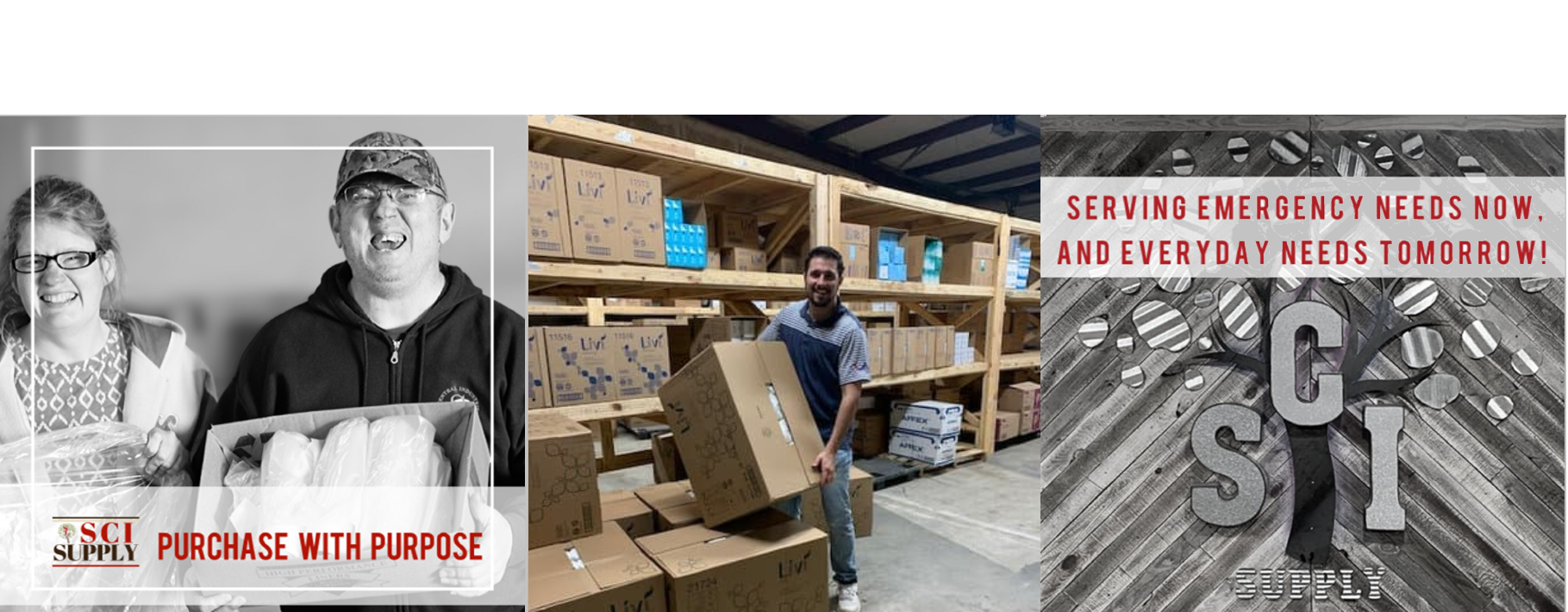
From Scarcity to Scale
March 14, 2020Innovative nonprofits are creating more mission than ever in this time of rapid change.
When a cohort of nonprofits in the town of Shawnee, Oklahoma began working together on a transformational sustainability process in late 2019, none of their leaders expected to be facing a pandemic just a few months later.
South Central Industries – More Revenue, More Mission
One cohort member, South Central Industries, provides workforce training and inclusive employment for adults with intellectual and/or developmental disabilities (IDD).
South Central accomplishes its mission in part by providing clients with jobs tuned to their abilities and interests. Clients work in all areas of South Central’s warehouse operations – counting, sorting, packing, assembly, and even forklift operations. South Central sells thousands of goods to businesses on its e-commerce website, which enables customers to “Purchase with Purpose.”
As many organizations struggled to respond, South Central Industries immediately expanded its services, extended its mission, and increased revenues by 50%.
When the novel coronavirus crisis erupted, South Central CEO Tina Hanna called on management, staff, board, and community leaders in preparation for making swift decisions.
Clients with compromised immune systems were transitioned to home care. Warehouse operations were immediately adjusted to accommodate social distancing. Tina rapidly accelerated a plan to open a physical storefront, SCI Supplies, deploying a pickup-only system for essential goods. She adjusted her supply chain operations to new demand – South Central never ran out of sanitizer or toilet paper, even as sales increased.

South Central’s revenues are up 50% and climbing, and operations are intense but smooth. Three key factors drove its successful pivot. First, while South Central puts mission first, its business model and its impact model are intentionally aligned. More revenue creates more mission and vice versa. Second, Tina called on external networks with transparency. She communicated honestly both inside and outside the organization, which enabled many people to respond effectively to her immediate needs and opportunities. Finally, Tina was not afraid to rapidly pivot. By identifying current needs and quickly investing in them, rather than cutting back, Tina was able to serve a market with much needed goods, accomplish her mission, increase her resources, and create new permanent revenue-driving relationships.
Key Success Factors
Aligned Mission
Transparency with Networks
Rapid Pivot
Lesson from South Central: Adapt Now
Every nonprofit can take key steps right now to survive and set the groundwork to thrive.
Identify new opportunities. In this environment, new services are needed. Tina saw that her planned store was suddenly more important than ever, and she opened it ahead of schedule on a limited curbside basis.
Reimagine your mission delivery. Put mission first and collaborate with constituents to understand new ways to accomplish your purpose. By changing the way staff and associates interact, South Central was able to continue to serve its clients.
Don’t react — adapt. This challenge will not be over in two weeks or two months. If you only work on the immediate crisis, in a few weeks or months you may find yourself in the same position but without resources. Use a planned process to make decisions, and then take rapid action. Tina took the time to reach out through a broad network to obtain advice and opportunity, and she invested in the future, even in crisis. By thinking beyond just tomorrow, South Central will not only weather the current storm, it will also be positioned for success later this year and into the next.

